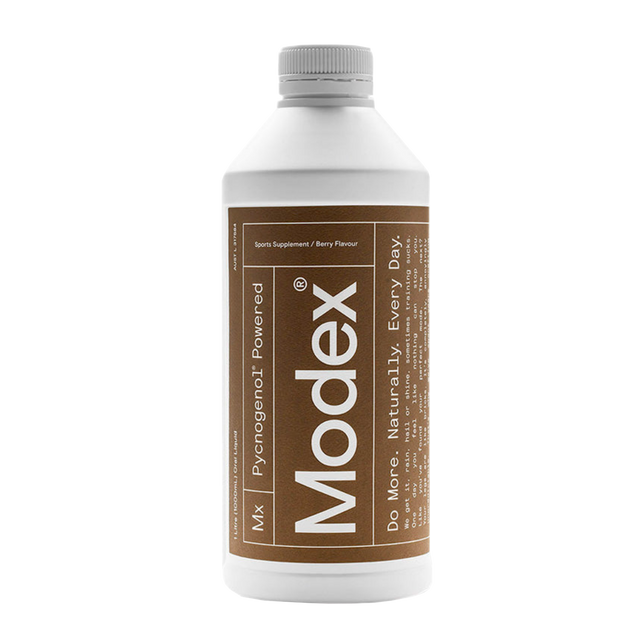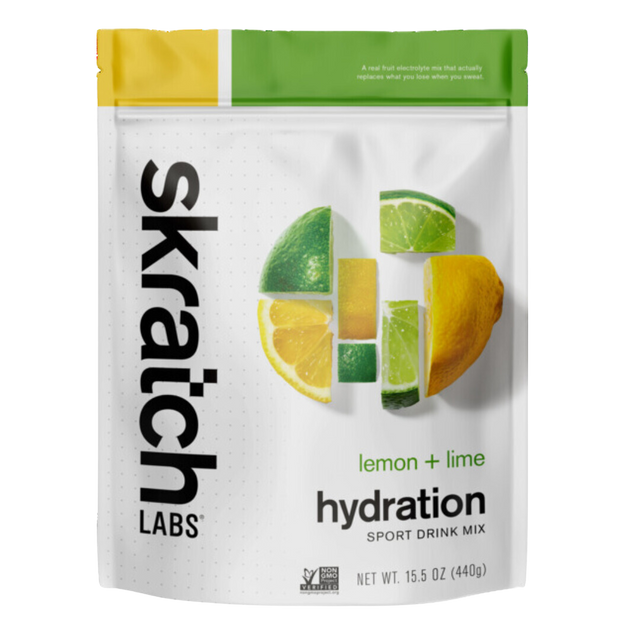What Type Of Food Should We Eat To Increase Our Stamina?
Ever hit a wall during your workout and wonder why? It may not be about pushing harder but about fuelling smarter. From choosing the right carbs to staying hydrated, your diet could be the missing link to endless stamina. Ready to break through your limits? Let’s dive into some essential strategies that will prolong your physical effort through your toughest workout or your yearly A race.
Eat Whole Foods
A whole food diet supports stamina by focusing on nutrient-rich, minimally processed foods that meet all of our body's needs. It provides the essential macro and micronutrients required for prolonged physical activity, regardless of the specific diet you follow. Here are a few tips to help you assess your diet and ensure it supports your energy and stamina.
-
Choosing complex carbs such as lentils, oats, rice, and potatoes are effective pre-exercise carbohydrate sources, providing sustained energy for endurance activities (1).
-
Plant polysaccharides, found in fibre and resistant starches, help boost stamina by improving energy use and reducing fatigue during exercise (2)
-
Protein-rich foods like dairy, eggs, and lean red meat, combined with a balanced diet, can boost vitality, stamina, and overall energy levels (3).
Hydration
A 2% loss in body mass due to dehydration can impair physical performance (4). It's a clear reminder just how important staying hydrated is to keep your stamina up! Here are my top hydration tips;
-
Have a drink bottle with you at all times as a helpful reminder to rehydrate.
-
Choose an isotonic hydration mix for exercise over an hour such as;
-
Rehydrate with 125-150% of the fluid you lost during exercise, ideally within 4 to 6 hours after finishing (5)
Aim for → Athletes go for 2.7-3.7 litres/day of fluid from food and water combined (6)

Carbs During Exercise
There are multiple studies that show the relationship between the depletion of muscle glycogen and the onset of fatigue during endurance exercise (7). Therefore It is an essential resource for extending our physical endurance. The amount of carbohydrates you need per hour during endurance activity is very individualised. As a starting point use the guide below;
-
Under 1 hour = 0-30g of carbs per hour
-
1-2 hour= 30-60g of carb per hour
-
Over 2-3 hours= 60-120g of carbs per hour
Daily carbohydrate intake aim for→ Endurance athletes 7-10 g of carbs/kg/day (8)
Supplements
Pure Sports Nutrition Performance + Race Ready
Race Ready Nitrates are designed for endurance athletes to use in the 5 days leading up to an event.
Each serve contains:
-
500mg of dietary nitrates from beetroot and red spinach (Oxystorm™)
-
Vinitrox™ to enhance blood flow and delay fatigue
-
150mg of anthocyanins from New Zealand blackcurrants
-
Natural, plant-based ingredients
-
Tested for over 200 WADA-prohibited substances by HASTA
ATP Science Tongkat Ali & Shilajit Powder
Tongkat Ali may help both men and women to:
-
Build lean muscle
-
Increase strength
-
Improve physical performance, especially when combined with strength training (9)
Shilajit may:
-
Boost testosterone levels
-
Support energy production by enhancing cellular energy function (10)
-
Pycnogenol® found in Modex boosts nitric oxide production
-
Improved blood circulation
-
Enhances oxygen and nutrient delivery to muscles
-
Supports sustained energy during physical activities
How to Use→ 100–200 mg/day for 4-8 weeks before a race or expected high training load. Best taken 3-4 hours before exercise for improvements in endurance performance and recovery time (11,12,13,14).
Creapure® Creatine Monohydrate
Creapure® Creatine Monohydrate is one of the purest, highest-quality creatine on the market. Found in ATP Science Creatine Monohydrate and PILLAR Performance Creatine Monohydrate. Creapure® Sourced from Germany and HASTA batch tested for quality and safety, ensuring safe consumption during competitions. Creatine enhances;
-
Muscle power
-
Supports faster recovery
-
Promotes lean muscle growth
-
Emerging research supporting brain health, mood, and cognition (15,16)
Ash Miller
Dietitian and Nutritionist (Masters)
Bachelor of Physical and Health Education
Instagram: @ashthomo_nutrition
References:
1. Naderi A, Gobbi N, Ali A, Berjisian E, Hamidvand A, Forbes SC, Koozehchian MS, Karayigit R, Saunders B. Carbohydrates and Endurance Exercise: A Narrative Review of a Food First Approach. Nutrients. 2023 Mar 11;15(6):1367. doi: 10.3390/nu15061367. PMID: 36986096; PMCID: PMC10054587.
2. Lin D, Rezaei MJ. Plant polysaccharides and antioxidant benefits for exercise performance and gut health: from molecular pathways to clinic. Mol Cell Biochem. 2024 Dec 18. doi: 10.1007/s11010-024-05178-8. Epub ahead of print. PMID: 39692997.
3. McNeill SH. Inclusion of red meat in healthful dietary patterns. Meat Sci. 2014 Nov;98(3):452-60. doi: 10.1016/j.meatsci.2014.06.028. Epub 2014 Jun 28. PMID: 25034452.
4. James LJ, Mears SA. Does dehydration really impair endurance performance? Recent methodological advances helping to clarify an old question. Sports Sci Exch. 2021;214. Available from: https://www.gssiweb.org/sports-science-exchange/article/does-dehydration-really-impair-endurance-performance-recent-methodological-advances-helping-to-clarify-an-old-question
5.Maughan RJ, Shirreffs SM. Recovery from prolonged exercise: restoration of water and electrolyte balance. J Sports Sci. 1997 Jun;15(3):297-303. doi: 10.1080/026404197367308. PMID: 9232555.
6. Institute of Medicine (2005). Dietary Reference Intakes for Water, Potassium, Sodium, Chloride, and Sulfate. The National Academies Press. https://doi.org/10.17226/10925
7. Helge JW. A high carbohydrate diet remains the evidence based choice for elite athletes to optimise performance. J Physiol. 2017 May 1;595(9):2775. doi: 10.1113/JP273830. Epub 2017 Feb 8. PMID: 28044326; PMCID: PMC5407959.
8. Burke LM, Cox GR, Culmmings NK, Desbrow B. Guidelines for daily carbohydrate intake: do athletes achieve them? Sports Med. 2001;31(4):267-99. doi: 10.2165/00007256-200131040-00003. PMID: 11310548.
9. Talbott SM, Talbott JA, George A, Pugh M. Effect of Tongkat Ali on stress hormones and psychological mood state in moderately stressed subjects. J Int Soc Sports Nutr. 2013 May 26;10(1):28. doi: 10.1186/1550-2783-10-28. PMID: 23705671; PMCID: PMC3669033.
10.Pandit S, Biswas S, Jana U, De RK, Mukhopadhyay SC, Biswas TK. Clinical evaluation of purified Shilajit on testosterone levels in healthy volunteers. Andrologia. 2016 Jun;48(5):570-5. doi: 10.1111/and.12482. Epub 2015 Sep 22. PMID: 26395129.
11. Weichmann F, Rohdewald P. Pycnogenol® French maritime pine bark extract in randomized, double-blind, placebo-controlled human clinical studies. Front Nutr. 2024 May 2;11:1389374. doi: 10.3389/fnut.2024.1389374. PMID: 38757130; PMCID: PMC11096518.
12. Vinciguerra G, Belcaro G, Bonanni E, Cesarone MR, Rotondi V, Ledda A, Hosoi M, Dugall M, Cacchio M, Cornelli U. Evaluation of the effects of supplementation with Pycnogenol® on fitness in normal subjects with the Army Physical Fitness Test and in performances of athletes in the 100-minute triathlon. J Sports Med Phys Fitness. 2013 Dec;53(6):644-54. PMID: 24247188.
13. Mach J, Midgley AW, Dank S, Grant RS, Bentley DJ. The effect of antioxidant supplementation on fatigue during exercise: potential role for NAD+(H). Nutrients. 2010 Mar;2(3):319-29. doi: 10.3390/nu2030319. Epub 2010 Mar 10. Erratum in: Nutrients. 2010 Apr;2(4):481. PMID: 22254024; PMCID: PMC3257644.
14. Pavlovic P. Improved endurance by use of antioxidants. Eur Bull Drug Res 7(2): 26-29, 1999. Available from; https://www.ncbi.nlm.nih.gov/books/NBK299046/, accessed on 31/03/2025.
15. Rawson, E.S. and Volek, J.S., 2003. Effects of creatine supplementation and resistance training on muscle strength and weightlifting performance. Journal of Strength and Conditioning Research, 17(4), pp.822–831.
16. Roschel, H., Gualano, B., Ostojic, S.M. and Rawson, E.S., 2021. Creatine supplementation and brain health: A narrative review of the current evidence. Journal of Clinical Psychopharmacology, 41(3), pp.249–255.
Disclaimer:
The content in this blog is for general information only and is not a substitute for professional medical advice, diagnosis, or treatment. Always speak with your doctor or allied health team before changing your diet, exercise, or taking supplements, especially if you have a health condition or take medication. Please use this information as a guide only. Aid Station doesn't take responsibility for individual outcomes.


















